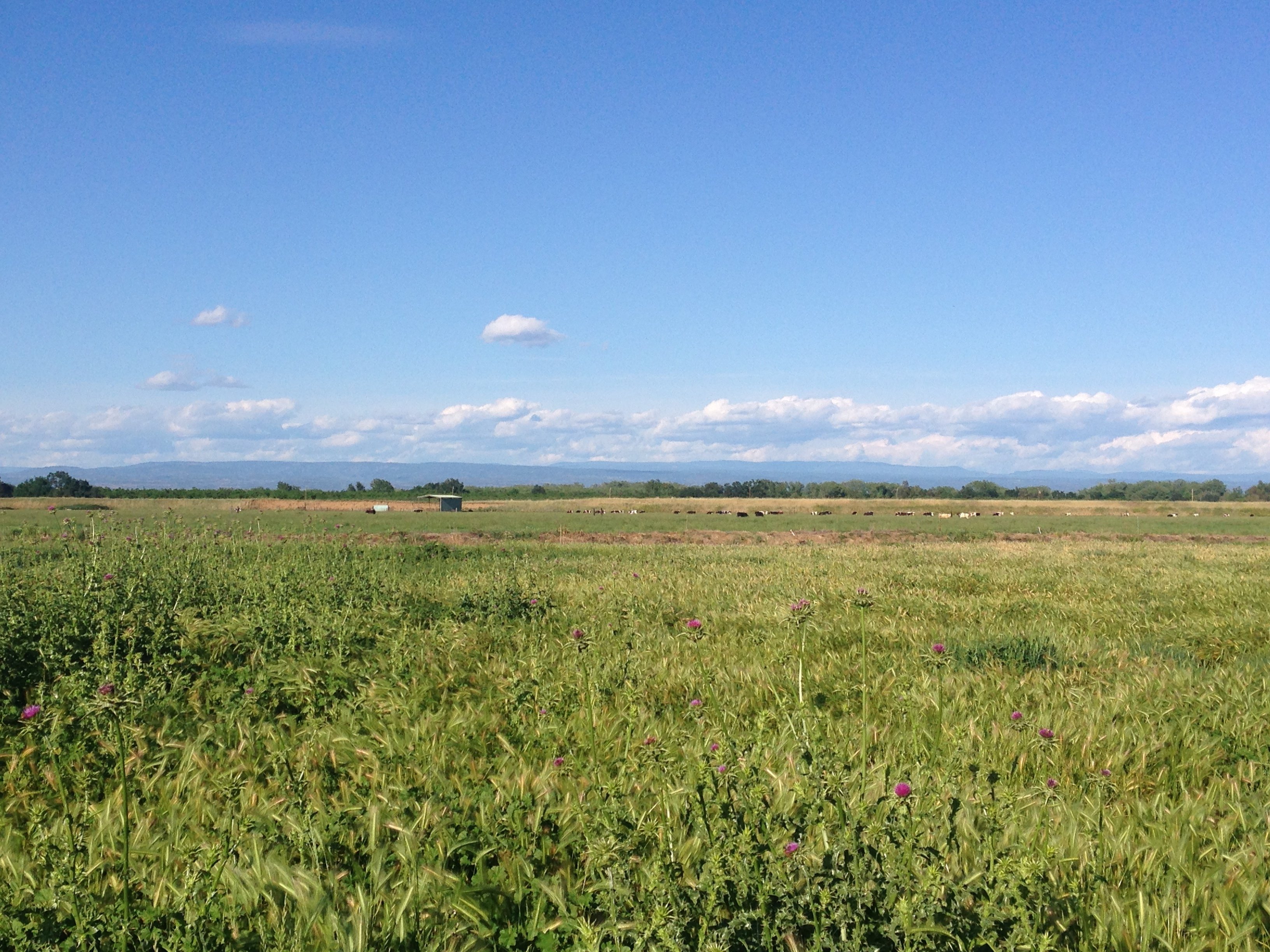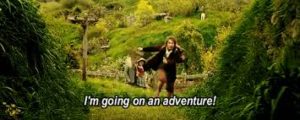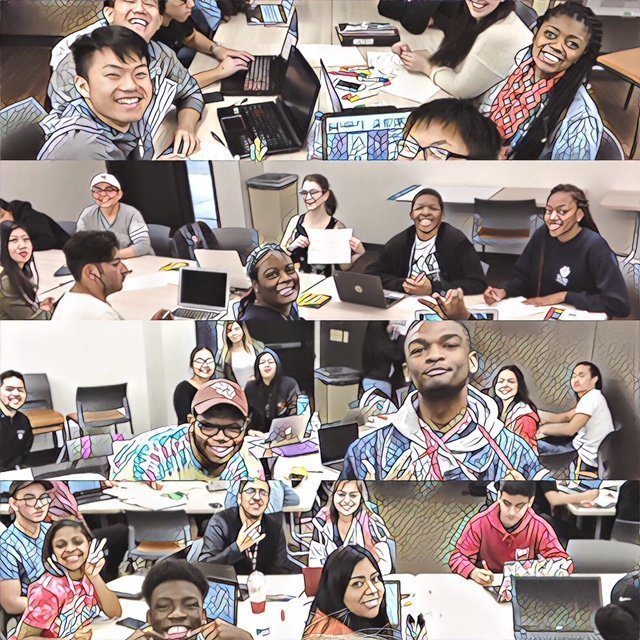
Make Cycle 4 & 5
 Make Cycles 4 & 5: Choose Your Own Adventure
Make Cycles 4 & 5: Choose Your Own Adventure
For the next four weeks, you’ll be doing your own research around digital culture and digital literacies. You might consider lines of inquiry based on the ideas we’ve talked about already: our digital selves, our quantified selves, hacking, data, analytics, etc. But you should feel free to pursue something we have not talked about yet that is of interest to you. For example, there is a lot written about the rise of “celebrity” culture and its connection to consumers and social media. There is a ton written about gaming literacy (and game design, which I study). And there is certainly a lot going on right now about students’ use of social media in the current gun law debates. Ultimately, you should be interested in what you’re reading and researching. It should not suck do to the work. If it sucks, then you should read something you like better. 😉
You can start by looking over this resource I created. Click around on some of the links and see if anything grabs your attention. I realize in the past that teachers might have asked you to come of with a “topic” or even a research question. I think it’s more useful to think of starting research by identifying “an area of interest” and then seeing where your reading leads you. Your questions will emerge from the reading and you may even abandon your initial area or plans and end up in another area doing research. This is a normal part of the process.
I would think about Make 4 as dabbling around and reading and then Make 5 as honing in your ideas and research.
I would think of this work as having two possibilities:
- Plan A: you research an area of interest in digital culture (the role of YouTube, the Anonymous movement, debates about Twitter and Facebook in our current political climate, gaming culture, gamer gate, the use of Minecraft in schools, Net Neutrality laws, wikileaks, digital activism, electronic art, representations of tech in films or TV, and on and on)
- Plan B: you research something not directly related to digital culture (like immigration or DACA or current gun laws or LBGTQ related issues or car culture or whatever), but you think about how those communities or issues are supported (or not) by digital literacies. How are these people, interests, movements leveraging the resources, the power and the problems of the web?
Make Cycle 4 & 5 in a nutshell:
- Curated Resource Due Sunday, April 8 (see assignment below)
- 2 sources write-up due Friday, March 9
- 2 sources write up due Friday, March 16
- 2 sources write up due Friday, March 30
- Explain Everything paper due Monday, April 16 (see assignment below)
Make 4 & 5 assignments:
Curated Resource (multiple due dates, but final version due Sunday, April 8):
Over the next four weeks, you’ll keep track of your research: the things you are reading, watching, gathering. You’ll share a Google Doc with us as you find links to articles, videos (Ted talks or films or?), etc that help you understand your area of interest. Under those links, you’ll write a short summary that helps you and others know:
- what the text is about (1-2 paragraphs)
- how its helps you with your research (does it provide some background info? Some data? An argument? A good model for how you might write about the ideas?)
You should have multiple links and summaries in the final document that is due April 8. These resources will help you to write the Explain Everything paper that follows. The number of sources really depends on what you’re researching, but I’m asking you to find at least two sources a week for three weeks (6 total). They may not all be connected to the same idea since it is likely your research questions will change as you move through the process; that is a normal part of research.
In the fourth week of this effort, I’ll ask you to write an introduction to the Curated Resource. Think of this as an overall summary of your research process: how you searched, what you learned, what was challenging…along with some synthesis of the sources. Basically, you’ll provide some context for your Curated Resource. This will be close to 2 pages. Here are the guiding questions:
- Why are you interested in this research? Is there something that made you want to know more?
- How have you found sources so far? What has been your process for looking for sources? What have you found?
- What have you learned so far from your research?
- What do you need to do next for your research? And, what kind of paper can you imagine writing from what you have so far? What might go into the paper?
- Then a summary of at least 6 sources (and most likely more links below your summaries). This is the annotated bibliography part.
- Here is an example from a former student.
- Here is the link to the Scoring Rubric for this assignment.
Some due dates for this assignment (all parts below are in one, shared Google Doc):
- 2 sources due by Friday, March 9
- 2 sources due by Friday, March 16
- 2 sources due by Friday, March 30
- Introduction and overview by Friday, April 6
- Final Curated Resource due Sunday, April 8
Explain Everything Paper (due Monday, April 16)
For this assignment, you’ll write about your research, explaining everything you’ve learned to us. You might make some arguments (about Immigration, about Net Neutrality….). You’ll explain what others have written about and what your views are now.
Paper Guidelines
You should expect that the paper will do the following:
- You should argue for a specific approach or point of view, even if it is tentative. (i.e. at this point in time, given the research I have read/conducted, I argue that . ..) OR provide information and analysis of an idea (i.e provide analysis of how women are represented in the media or how car culture is created in online communities…)
- Minimum 3 sources represented in your paper. Select the most relevant research for discussion/support of your ideas. Use in-text citations to support your ideas (this is a fancy way of saying use quotes from your sources to support what you say).
- Your paper should be carefully documented including MLA or APA in-text citation and Works Cited (MLA)/References Page (APA)
- 3-6 pages
You will be evaluated based on the complexity of your claims, your use of support/outside sources, and you attention to editing and citation format guidelines.
Guiding questions that might help you with what to say:
Ideas for your introduction:
- why are you interested in this? Why should others be interested? You might be able to revise the intro from your Curated Resource.
- Tell a story about your experience with the thing you are researching. If you’re a gamer, talk about that and describe what it’s like to play. Tell your immigration story or a story from your family. Talk about how you’ve experienced the media: are you represented in current popular media? Tell a story about being part of car culture or another issue you are a part of…
- Summarize one of your sources as a way to start the paper, then explain how you became interested in the n3ext paragraph.
- Tell us what other’s or the public think about this issue and then go on to explain why the public is confused or has a limited view of the issue
- Describe a case or someone’s story that lead to this research.
- Explain why this issue is important to think about at the moment in time.
Ideas for the body of the paper:
- If you’ve used a film, book, video or TV series: you could summarize or describe it and then go on to do your analysis of the text.
- You could summarize your sources and tie them to your claims and ideas.
- You can connect a story you told in the introduction to the sources you are reading. How do the sources connect to your experience with the issue?
- Go back and look at Monica’s paper and think about how she uses each paragraph to move through her argument about civic engagement in college. You might also look at how your sources use their body paragraphs to move through the ideas.
Ideas for your conclusion:
- So what? So why should people care about this? What do you want people to leave with after they read the paper?
- Is there anything people can do? Awareness, places to search for more information or to volunteer?
- You could address what you think should happen next: what questions are you left with? What would you research next? What should others work on?
- You could go back to your story if you had one in your intro and add to it. In fact, you could not tell the ending and then use the conclusion to say what happened.
If you get stuck: read your sources or look for other sources (as models or as more information).

